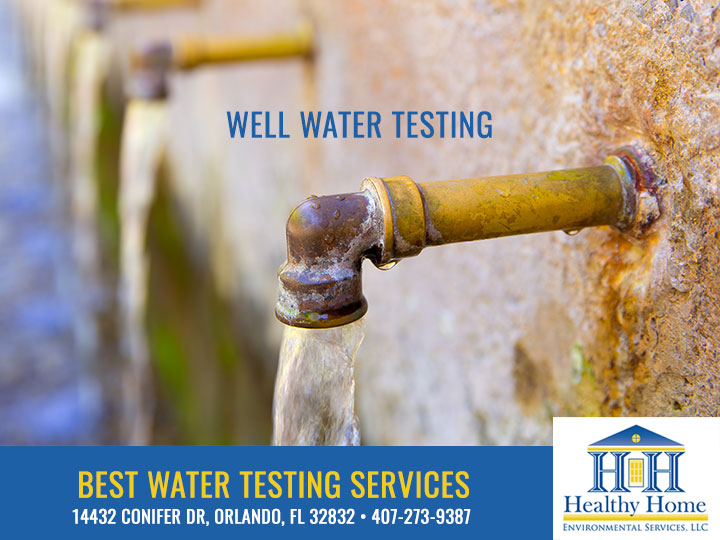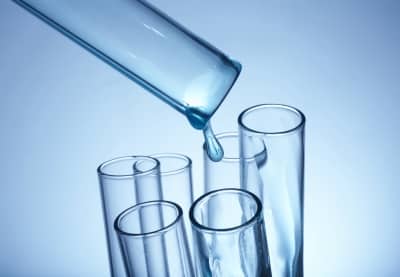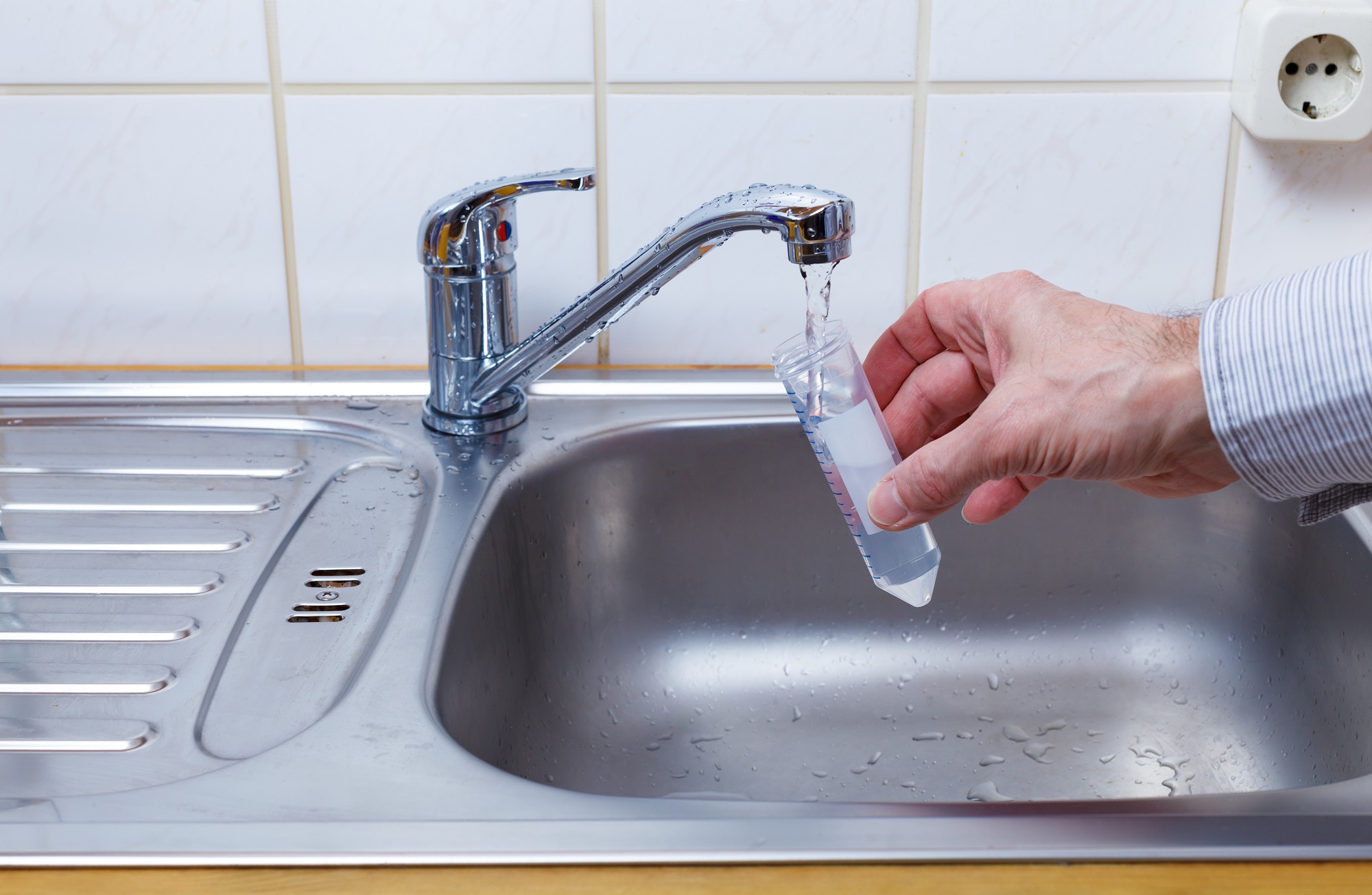Learn Just How Water Screening Can Identify Pollutants and Shield Your Family members's Health
Comprehending the value of water testing is important for safeguarding your family members's health and wellness, as our water supply can harbor hidden risks. By discovering the auto mechanics of water testing, one can reveal the undetectable dangers lurking in seemingly excellent water sources.
Value of Water Evaluating
Recognizing the crucial duty water plays in sustaining life, the value of water screening can not be overemphasized. Making sure that water is cost-free from harmful substances is critical for preserving healthy neighborhoods and ecosystems. Water Testing Services Near Me.
Water screening functions as an aggressive procedure to recognize possible threats that may jeopardize water high quality. With systematic analysis, it assists discover physical, chemical, and organic specifications that could pose risks to human health. Routine screening permits for the early detection of concerns, assisting in prompt treatments to avoid prevalent contamination and connected health problems.
Furthermore, water testing supports governing conformity, making sure that water suppliers satisfy well-known safety and security criteria and standards set by governmental authorities. It promotes transparency and liability, constructing public trust in the supply of water system. Additionally, testing provides useful information that educates water monitoring strategies, allowing sustainable use and preservation of this valuable source.
Fundamentally, water screening is an essential tool that safeguards public wellness, ensures regulative adherence, and advertises the sustainable monitoring of water resources. Its relevance in protecting both neighborhoods and individuals can not be ignored.
Usual Water Contaminants
Among the different aspects that can endanger water quality, common water contaminants consist of a range of physical, chemical, and organic materials that posture substantial risks to human health and wellness and the environment. Physical pollutants typically involve sediments or organic materials put on hold in water, which can impact quality and taste.
Biological impurities, largely bacteria, infections, and protozoa, arise from animal and human waste going into water supply. Pathogens such as E. coli, Giardia, and Cryptosporidium are well-known for triggering stomach diseases and can be particularly harmful to little ones, the elderly, and those with jeopardized body immune systems. Nitrites and nitrates, commonly coming from plant foods, pose one more health risk, particularly to babies, potentially causing conditions like methemoglobinemia or "blue child disorder."
Additionally, emerging contaminants, including pharmaceuticals and individual treatment products, have actually increased worries as a result of their persistence and unknown long-term results. Comprehending these impurities is important for applying effective water therapy methods and making sure risk-free drinking water.
Just How Water Testing Functions
Comprehending the range of contaminants in water underscores the importance of reliable testing techniques to secure public health. Water screening is a methodical procedure designed to determine and measure various contaminations that might pose dangers to human health and wellness.
Chemical screening commonly includes spectrometry or chromatography, both of which can identify and gauge certain chemical compounds. In addition, physical characteristics like shade, ph, and turbidity are examined to offer insight right into the general top quality of the water.
The accurate approaches employed in water testing depend upon the specific pollutants of worry and the water's meant usage. By consistently applying these extensive screening protocols, scientists and public health and wellness officials can ensure the safety and security and high quality of water, thus securing communities from prospective wellness hazards.
Choosing the Right Test
The initial action is analyzing the water resource-- be it metropolitan, well, or surface area water-- as each has distinctive threats. Local water may need screening for disinfectant byproducts, while well water may require screening for nitrates, germs, and hefty steels.
Next, consider environmental aspects and current events. Nearby agricultural tasks could require testing for herbicides and chemicals, whereas commercial zones can require look for chemical pollutants. Additionally, any adjustments in water preference, smell, or appearance ought to prompt certain testing for common impurities like lead, chlorine, or biological pathogens.
Expert water testing services use thorough kits that target a large range of prospective contaminants. These sets often straighten with requirements established by the Epa (EPA) or local wellness divisions. For an extra tailored strategy, seeking advice from a water top quality professional can offer insights into which certain tests are needed based on regional problems and private health and wellness needs, ensuring the protection of your home's health.

Preserving Water Safety And Security

Along with testing, appropriate upkeep of water supply plays a crucial function. This includes servicing and examining plumbing systems, tank, and septic systems to stop leakages or backflow that might introduce impurities - Water Testing Services Near Me. Using water filtration systems developed to resolve details neighborhood problems can better protect against contaminations, offering an additional layer of security
Public awareness and education and learning are equally crucial in keeping water security. Neighborhoods must be informed about possible dangers related to local water sources and the required More about the author steps to alleviate them. Urging public participation in water security efforts cultivates a cumulative duty that enhances general efficiency.
Eventually, a thorough method that incorporates routine testing, system upkeep, and neighborhood involvement is vital in safeguarding water quality. By doing so, families can be assured of tidy and safe water, shielding their wellness and health.

Conclusion
Normal water testing is crucial for determining contaminants such as bacteria, hefty metals, and chemicals that posture wellness threats. By evaluating water examples, hidden dangers can be spotted, making certain the stipulation of risk-free alcohol consumption water. This proactive method assists create a healthier setting and promotes notified decision-making pertaining special info to water security. Selecting proper screening approaches and keeping vigilance in water high quality are essential action in safeguarding public health and making sure the health of all home members.
Recognizing the value of water testing is crucial for securing your family's health, as our water supply can harbor hidden threats.Water testing serves as a positive action to identify prospective threats that might compromise water quality.Additionally, water testing supports regulatory conformity, guaranteeing that water companies satisfy established safety standards and guidelines set by governmental authorities. Community water may require testing for disinfectant results, while well water might need screening for nitrates, germs, and heavy steels.
Normal water testing is a critical element in preserving the high quality of water resources, enabling timely treatments prior to pollutants get to unsafe levels.